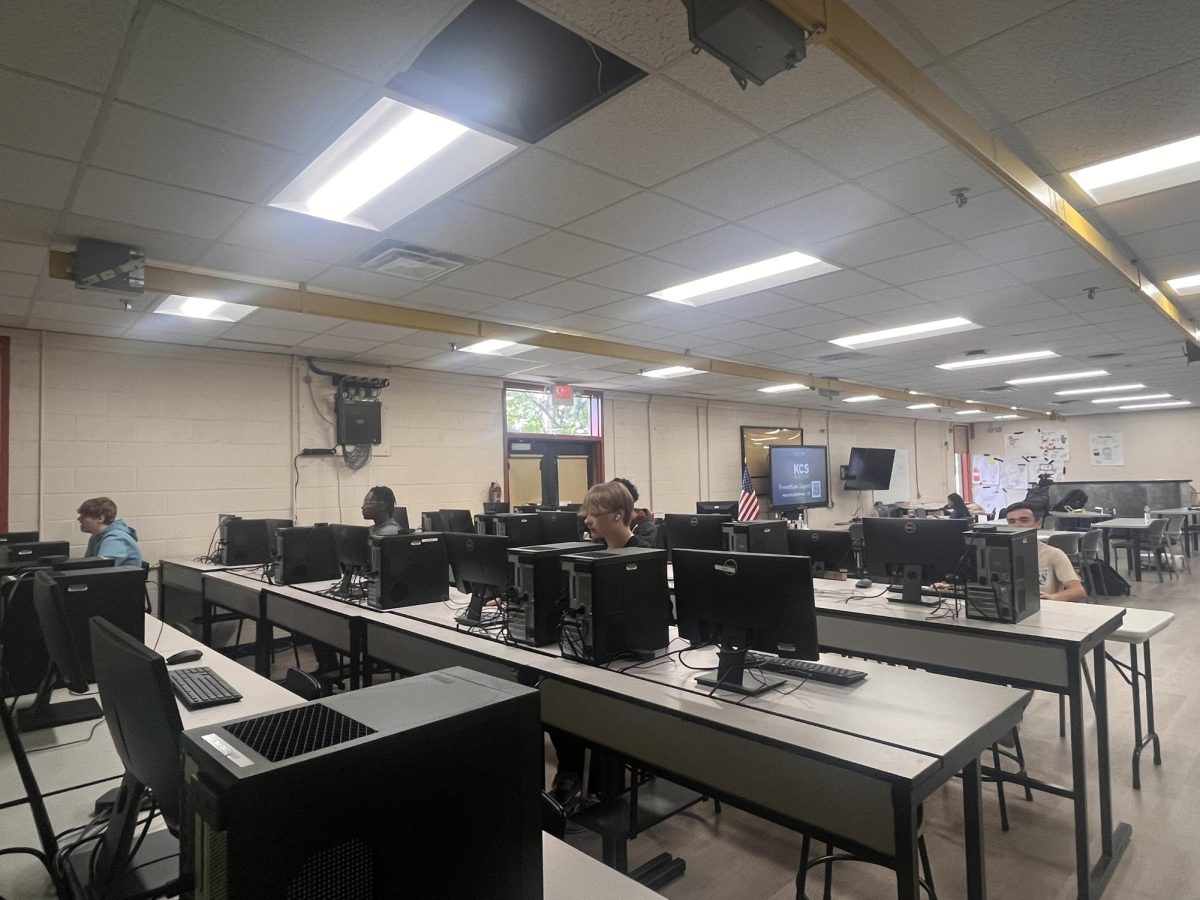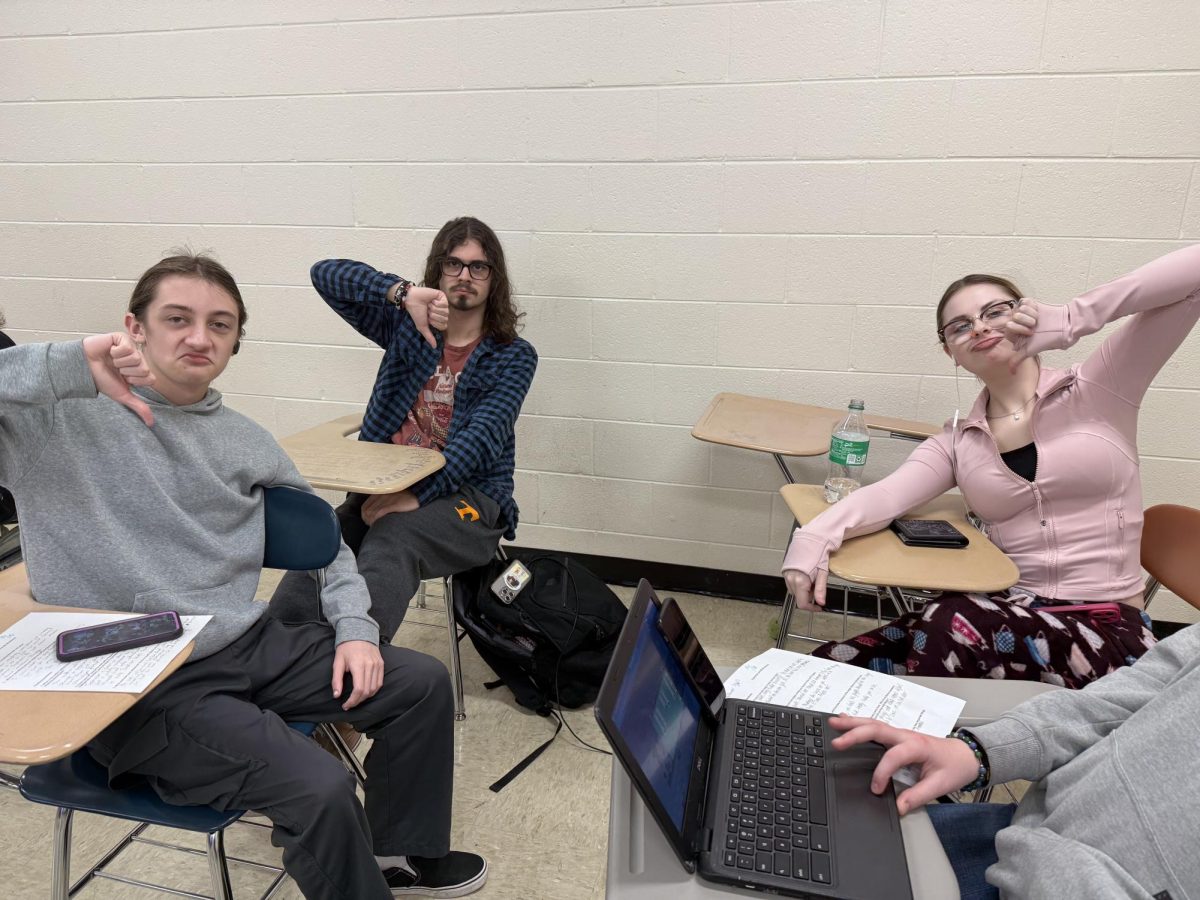Editor’s Note: The student newspaper of Karns High School is a public forum, with its student editorial board making all decisions concerning its contents. Opinions in the paper are not necessarily those of the staff, nor should any opinion expressed in a public forum be construed as the opinion or policy of the administration, unless so attributed.
Our school district’s ability to manage and allocate funds efficiently would increase student outcomes. Funding is the foundation of a school; affecting the quality of the building, students’ engagement in activities, and the belief of equitability between teachers and their classrooms.
At Karns High School, funding is a double-edged sword. Some teachers feel they are receiving the funding they need, even if it takes a month or two to receive. While, other administrators point out the loss of programs that were beneficial to students due to budget cuts, and clubs/sports not getting any funding, resulting in them having to raise their own money. As well as classes in the Career and Technical Education (CTE) pathway and classes in Byington receiving different funding that is often perceived as better.
Typically, students view how their school’s budget is divided between sports and clubs as unfair. The football team seems to get the most money and all the other extracurriculars get what’s left. Despite the common belief, none of the school’s budget is allocated to sports and clubs.
“So as far as clubs and athletics, they are responsible for raising all their own funds,” Chris Ottinger said, “The district doesn’t provide funding for them. They have to do fundraisers or something like that and that determines what kind of money they have.”
Many of the clubs will ask for donations on social media, often for raising money for equipment, uniforms, etc… Furthermore, fundraisers like “Dunk a senior” are done to help sports or clubs that are lacking resources and parts of our community in general.
“Last year with the chicken biscuits, [the money raised] was to send teachers to professional development to make classroom instruction better,” Ottinger said.
Although fundraisers can improve teamwork and problem-solving skills, sports, clubs, and professional development for teachers should still receive permanent funding so students and teachers don’t have to solely rely on what they make from fundraising.
Despite the school having to raise money for extracurricular activities, and certain programs, art teacher, Alexandra Boyum, feels especially valued in her position as a teacher when it comes to how funding affects her classroom and the supplies she needs.
“We get a really good budget for our class because our whole class is reliant on the materials,” Boyum states, “I would say I feel very valued in our position because at other schools I’ve been at, we did not get any of the budget… I feel like our school district does value what we do, so we get quite a bit.”
One thing Boyum does emphasize is the need for more shelves and totes in order to stack things and reduce clutter. Due to having to wait until funds hit, Boyum manages her classroom resources at the beginning of the year by planning in advance; starting off with a drawing unit. Preparation like hers reduces the complications she experiences when it comes to funding.
At Karns, teachers have conflicting views on the major difference between how CTE classes are funded versus classes that only get money for supplies. CTE classes are mainly funded through the Carl Perkins Act, this grant has been reauthorized and updated over several years to become what it is today.

Lots of teachers feel their classes are less important than CTE classes, kids are less engaged, and they have to spend their own money on supplies.
Bj Arvin says “My first six years of teaching, I was a CTE teacher so I was there at the beginning of the Perkins grant funding…when it first came out there was some animosity. Why do you get money? Why don’t I get money? Over the past 20 years, people kind of understand it’s a federal thing…in the building, it’s nobody’s fault.”
Although Arvin did start off by having issues with the Carl Perkins Act, he now speaks of the impact of CTE classes on students.
Arvin says “Not every CTE class is going to lead a student being job ready but the way I look at it is, it can show you what you want to do [career wise] and what you don’t want to do.”
All-in-all, the budget here at Karns is not perfect. There are pros and cons but, what students and teachers do to improve their circumstance is what matters.










